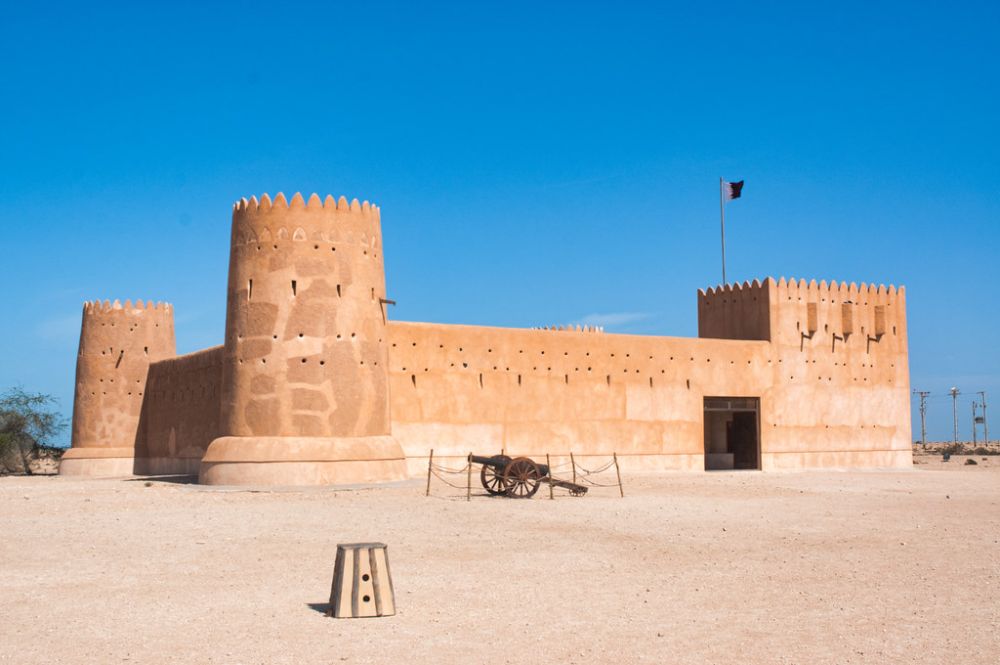

The town of Al Zubarah lies on the northwestern coast of the Qatar Peninsula, and it encapsulates the rich cultural heritage of Qatar. Established by merchants as a trading outpost in the mid-18th century, Al Zubarah has since evolved into an UNESCO World Heritage site and a cornerstone of Qatar's tourism industry.
The roots of tourism in Al Zubarah can be traced back to its days as a bustling pearl fishing and trading center. Its strategic location along the coast made it a hub for merchants and seafarers. However, following the destruction wrought by successive military conflicts, Al Zubarah was eventually abandoned in the early 20th century, leaving behind ruins that would later capture the world's imagination.
Archaeological excavations in the 1950s and 1970s rekindled interest in Al Zubarah, exposing preserved remnants of palatial houses, mosques, streets, and a fortified town with a surrounding wall. Recognition of its significance grew, drawing tourists interested in Qatar's history and culture.
A pivotal year for Al Zubarah was 2013 when it was designated as a UNESCO World Heritage site. The recognition highlighted the importance of the area not just for Qatar, but for the story it tells of the Gulf region's socio-economic and cultural history.
Since the listing, efforts have been made to develop the site responsibly to foster tourism while preserving its archaeological integrity. The incorporation of Al Zubarah Archaeological Site into Qatar's national tourism strategy has meant the upgrading of visitor facilities, increased promotion, and heritage management plans to accommodate and educate visitors.
Recent trends in tourism in Al Zubarah focus heavily on cultural and educational experiences. Visitors can explore the Al Zubarah Fort, which now houses a museum showcasing artifacts from the site and providing information about life in the region during the 18th and 19th centuries.
Alongside traditional visits, eco-tourism is also gaining popularity. The surrounding Al Zubarah nature reserve is another draw for tourists, offering a chance to experience Qatar's desert ecology and a rare glimpse of native wildlife in their natural habitats.
As a part of broader trends in tourism, there has been a push towards digital engagement. Interactive apps and virtual tours are emerging to offer visitors an enhanced experience of Al Zubarah's history and its surroundings even before they set foot at the site.
Qatar's investment in the cultural and historical preservation of Al Zubarah seeks to ensure its continued relevance and accessibility for future generations of tourists. With the state's proactive approach to storytelling and education, Al Zubarah is not just a window into the past, but also an exemplar of how heritage sites can play a role in the modern narrative of a nation's identity.